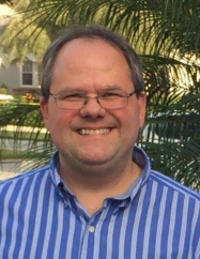
Governor Laura Kelly just took an interesting tack on the Kansas Legislature’s bill prohibiting Transgender girls from competing in girls’ athletics. She calls it a job killer. Is she right?
Kelly noted that states like North Carolina have experienced companies moving out of, or refusing to relocate into their state due to discriminatory laws. Georgia’s restrictive new election laws have also generated calls for corporate boycotts.
The Governor is alluding to an idea called the creative class, advanced in the early 2000s by urban studies professor Richard Florida. He argued that a new social class was beginning to shape American politics and society. They combine college education, professional aspirations, and socially-liberal values. The creative class questions traditional institutions. They are less likely to get married or go to church, for example. They also reinvented the workplace. Increasingly, in the professional world you are judged on what you accomplished, not where you worked, what schedule you kept, or how you dressed. Work facilities such as Apple, Google, and Microsoft headquarters incorporate coffee bars, gyms, outdoor recreational areas, and child care centers. Kansas City’s massive Cerner headquarters also has many of these. Long before the pandemic and Zoom, Florida envisioned more and more professionals working on laptops while sitting on park benches or in coffeehouses.
According to Florida, this new creative class celebrates tolerance. Even those not directly affected still perceive a community hostile to its Lesbian, Gay, Bisexual and Transgender (LGBT) neighbors as being equally hostile to the inventive, nontraditional new approaches to work, family and play embraced by creatives. It would also be unwelcome to their friends and family who are LGBT. Non-inclusive communities would be passed over by employers because they could not recruit their creative, often (but not always) college-educated employees to move there.
A few years ago, Amazon announced after an intense competition that it was building a second headquarters in the Virginia suburbs of Washington, DC. Even with generous tax breaks, that area has a much higher cost of doing business than many other possible locations. However, it offered the right mix– a transportation hub and a cosmopolitan metropolitan area attracting the creative class professionals that Amazon needs.
In some ways, the theory appears to fit Kansas. This state’s highest-growth locations are suburbs such as Johnson County, along with the larger college towns, Lawrence and Manhattan. Responsible for 25% of the state’s GDP, JoCo is represented by Sharice Davids, who is lesbian, one of the first Native American women elected to Congress, and the state’s only Congressional Democrat.
Then again, Florida’s analysis has also faced withering criticism. Not all creative class workers are socially liberal. Also, workers still go where they can find jobs, particularly when jobs are scarce. There is also a cause-and-effect issue. Do more professionals make a place tolerant, or vice-versa? Finally, will creatives decide if they can live here based on the statewide environment, or that of specific communities like Lawrence? Consider Austin, Texas. Austin is one of the nation’s premier creative class hubs, attracting many people who disagree with Texas’ statewide political climate.
To be clear: this “Trans ban” is a completely unneeded attack on the personhood of Trans girls. It mandates discrimination based on fearmongering and ignorance about science. It is a blatant, politicized attempt to drive a wedge between advocates for girls’ sports and advocates for Transgender rights. However, the Governor’s economic argument is not the strongest case against this bill. There are plenty of others.
Michael Smith teaches political science at Emporia State.








